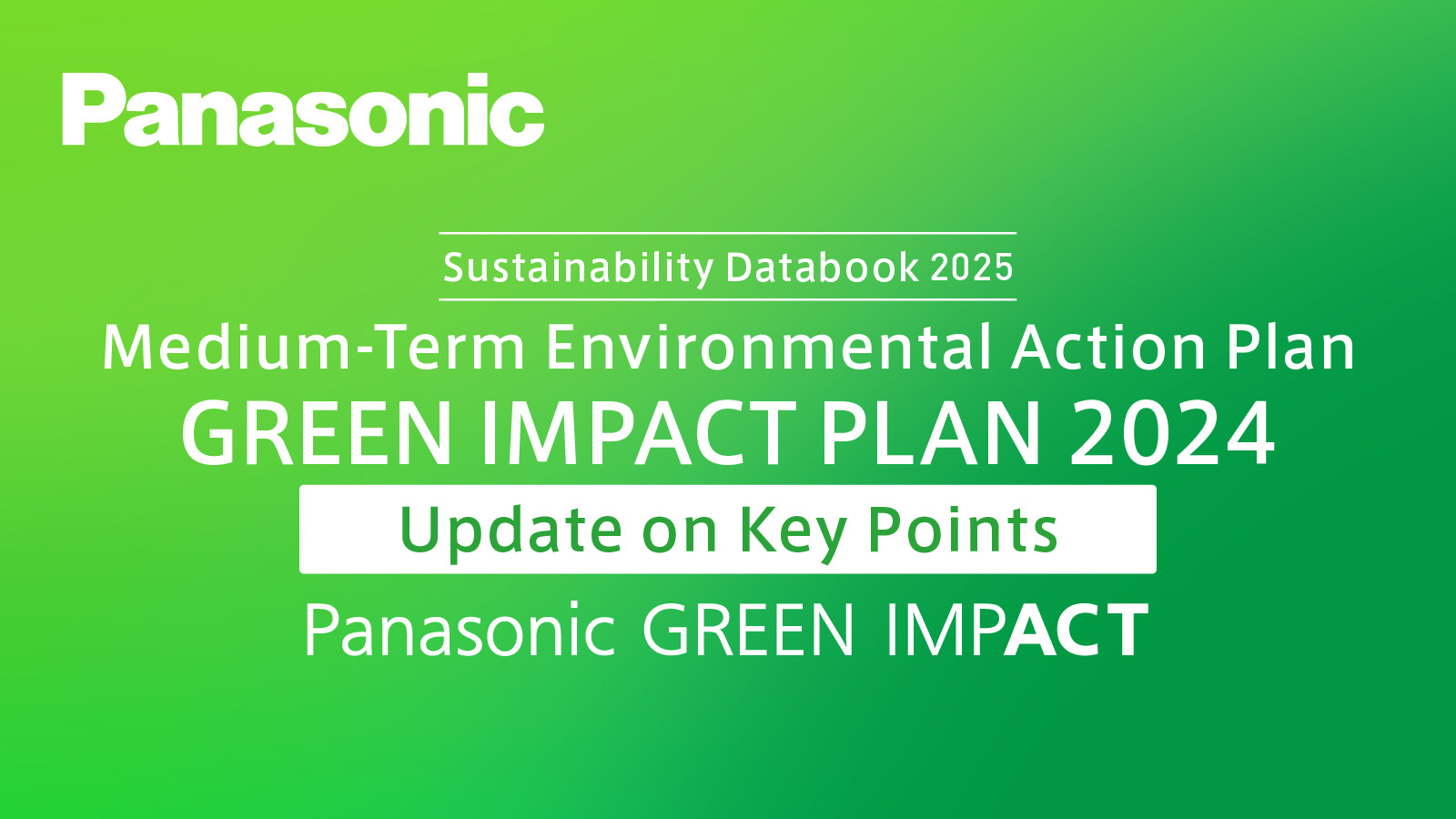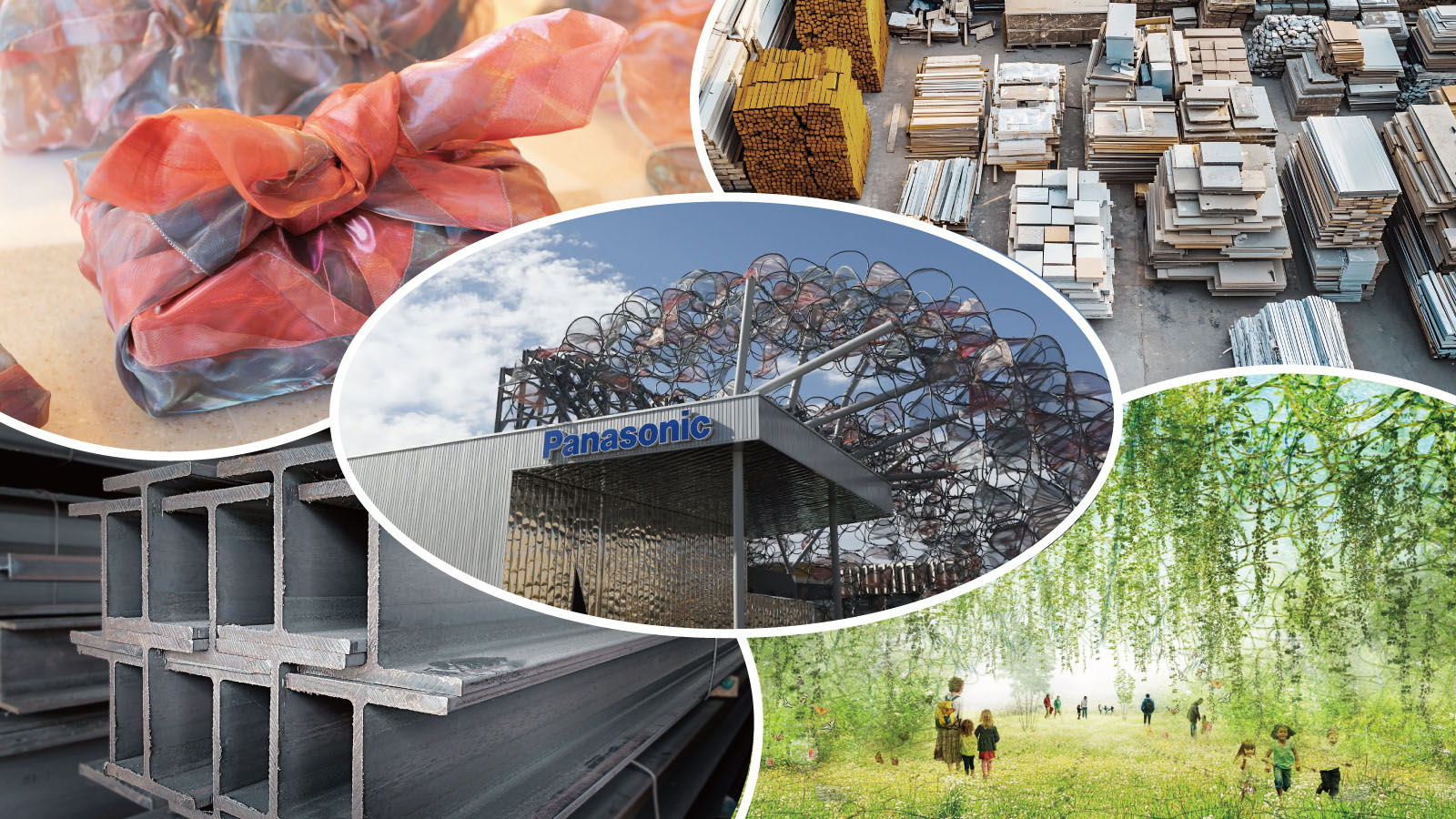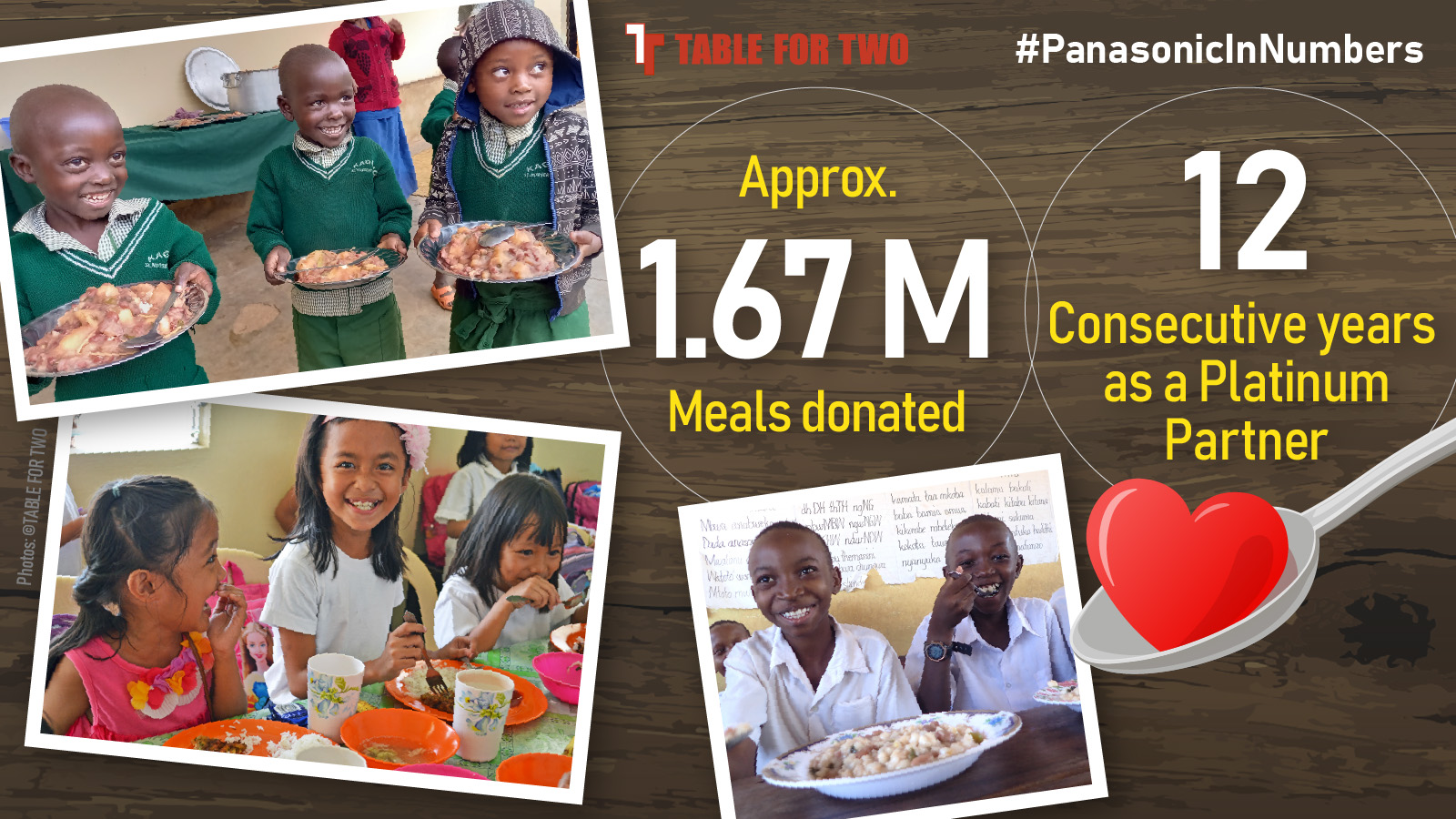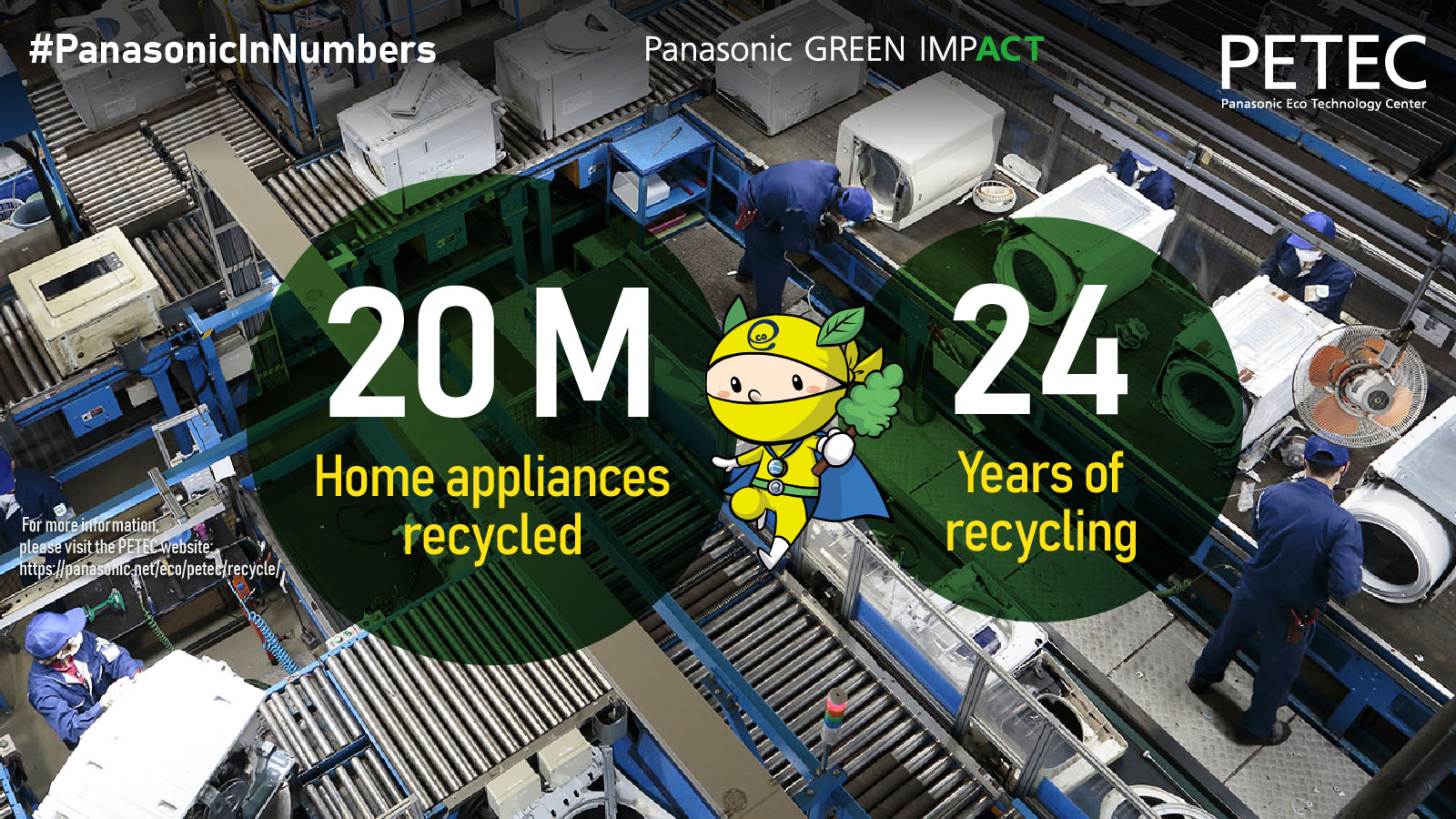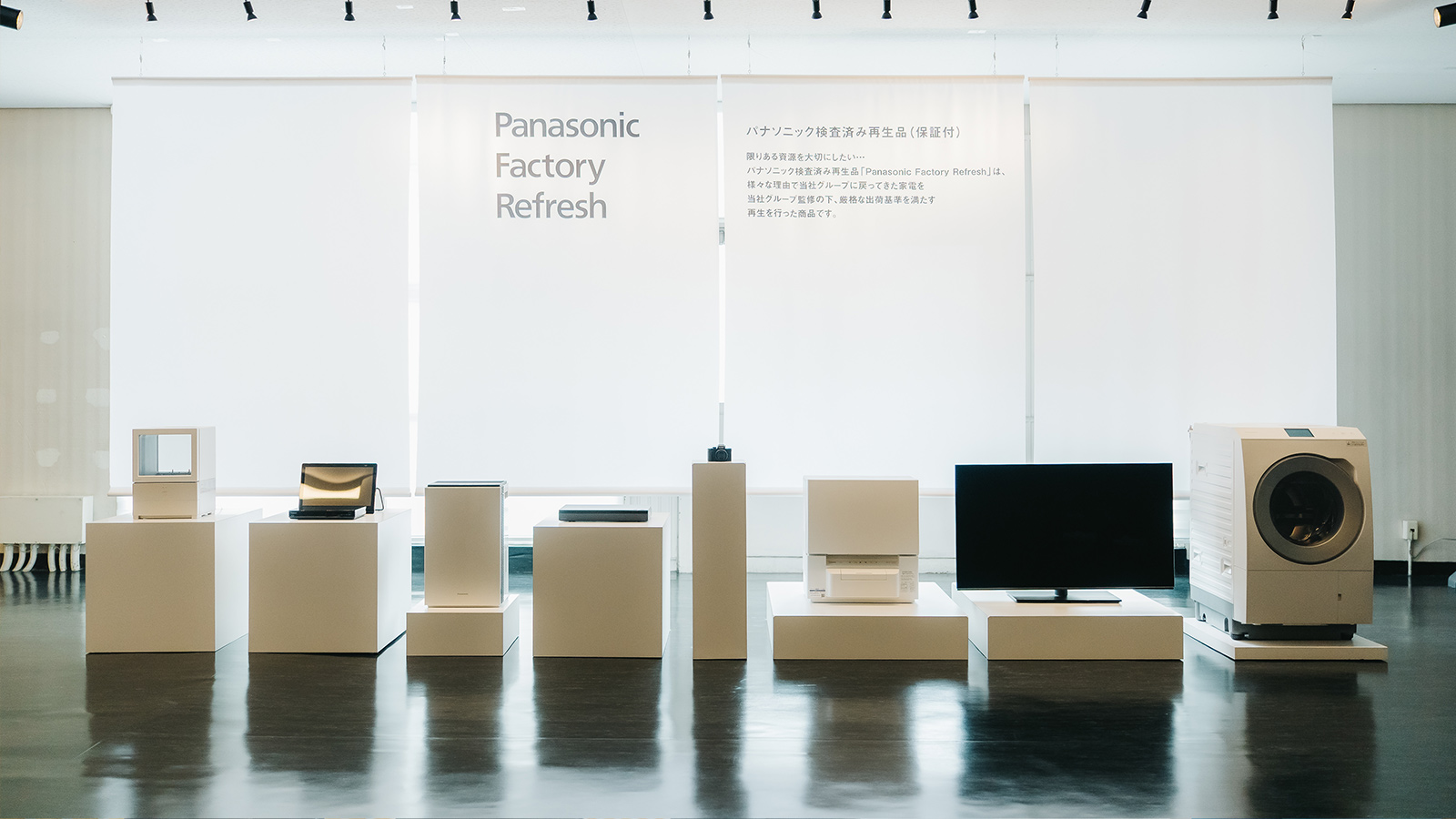
Protecting the environment and combatting climate change are topics that are rarely out of the headlines these days, and there is growing awareness of the need to protect our fragile planet. Recent studies show that consumers in many countries now regularly consider the environmental credentials of companies when selecting products.
As one of the world's major manufacturers, whose products are used by more than one billion people every day, Panasonic recognizes it has a particular responsibility to help reduce harmful emissions, replenish the supply of natural resources and protect the environment - both during the manufacture and delivery of its products and during their use. However, the company sees its responsibility extending well beyond the scope of its own operations; explains Panasonic Group CEO Yuki Kusumi, "Our aim to is empower people to live better lives and contribute to a more sustainable future for society."
Accordingly, Panasonic has launched an ambitious program it calls "Panasonic Green Impact," which commits the company to achieving net zero carbon emissions across all of its operating companies by 2030. The final three letters of "Impact" are deliberately highlighted to emphasize that the program is based on action, not just words. Its remit extends across the company's entire eco-system of suppliers, distributors and retail networks in all the countries in which Panasonic has a presence.
One of these is Brazil, the world's sixth most populous country and home to 60% of the planet's largest rainforest. Over the years, its governments have undertaken a wide range of conservation and environmental protection measures, including the promotion of renewable energy sources. Given the country's proximity to the equator, there has been particular focus on harnessing solar energy, which is now the fastest growing renewable energy source in Brazil.
Panasonic's Brazilian subsidiary PANABRAS is working closely with local partners on a wide range of initiatives to support these measures, in alignment with Panasonic's global ESG initiatives. They include the supply of renewable energy, extensive water and energy conservation measures, and a program of CO2 emission reductions. In fact, the three PANABRAS factories in Brazil are Panasonic's first in Latin America to have been awarded the "Zero-CO2 Emissions" label by the company's headquarters in Japan.
In the field of renewable energy, the company has set the target of at least 60% of the total energy it consumes in Brazil to be provided by self-generated solar power from 2024. To this end, PANABRAS has embarked on a partnership with a number of local companies.
These include the renewable energy consultancy Pontoon Clean Tech; the two companies are collaborating in the construction of a huge new solar panel plant in the town of Mauriti, Ceará, in the east of the country. Covering a total area of 1,100 hectares, the plant will contain 935,000 solar panels when completed. It will supply electricity to the company's nearby Extrema plant, meeting around 65% of its total energy needs.
The Extrema plant produces refrigerators and washing machines, and was the first of the Panasonic manufacturing facilities in Latin America to be recognized as a zero-CO2 emission plant by the company's headquarters. Known locally as the "Green Factory" for its ecologically-minded manufacturing processes, the Extrema facility participates in a number of complementary conservation projects, one of which involves the planting of thousands of tree seedlings in the region every year.
Yet while reducing the environmental footprint of its factories is important, Panasonic estimates that the CO2 emissions from the power plants needed to supply electricity for the daily use of its domestic appliances are around 40 times greater. So another major focus area for PANABRAS is designing more efficient household consumer goods that consume less power to begin with. The result - a new line of refrigerators that consume up to 45% less power than comparable models.
This resonates well with Brazil's increasingly environmentally-conscious consumers. In a joint action with PANABRAS, the country's nationwide Fast Shop retail chain is promoting the purchase of the new refrigerators. When delivering them, Fast Shop will collect the customer's old device at no cost and ensure it is disposed of in an environmentally-friendly manner.
In addition to electricity, washing machines obviously consume water - lots of it. The latest Panasonic models can save up to 30 liters per cycle, providing consumers with a cheaper wash and allowing them to make their own contribution towards protecting the environment. In the ten years since it started manufacturing washing machines in Brazil, the company estimates its models have enabled water savings of approximately 17.4 billion liters, equivalent to almost 7,000 Olympic-sized swimming pools.
Many household electrical appliances contain toxic components such as cadmium, lead and nickel, which can contaminate the soil and water table if not properly disposed of; other components such as plastic, glass and rubber take hundreds of years to decompose. The refrigerant gas used in refrigerators must also be captured and recycled. To address these challenges, PANABRAS has launched a service that provides safe and environmentally-friendly disposal of large domestic appliances and the recycling of their components.
This service is being offered in partnership with Ecoassist, a company specializing in reverse logistics and ecological disposal. All collected devices are sorted by type and then disassembled; all of their components and materials are recycled as raw materials into future production chains. The refrigerant gas in refrigerators is captured, treated and recycled. The entire process is documented and each individual disposal certified, proving the ecological destination.
PANABRAS intends to continue its drive to produce more advanced consumer appliances more efficiently in Brazil and ensure that their use and eventual disposal have as little impact on the environment and on our climate as possible.
PANABRAS Operations Director Márcio Castro sums up the company's approach to sustainability in Brazil. "Sustainability is part of our DNA and we place great value on making our contribution to society."
# # #
Disclaimer:
We would like to note that Panasonic Newsroom is not a place to address personal Customer Service issues. Even though this is not the forum, Panasonic is always eager to resolve your concerns. Our local customer services contacts can be found at Global Support or you can see our list of Social Media Accounts to find the right channel for your queries and concerns.




